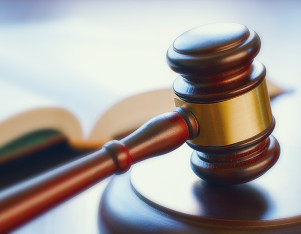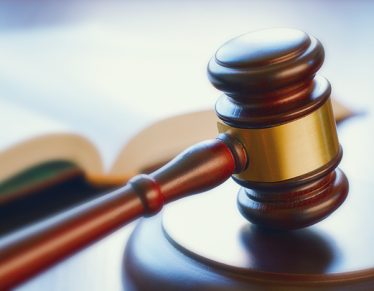At the climax of one of the most watched trials that took place in 2022, conspiracy theorist and media personality Alex Jones breathed life into the infamous fictional lawyer once more on August 3, 2022 when confronted with irrefutable evidence by attorney Mark Bankston – one of the attorneys representing Neil Heslin and Scarlett Lewis, the parents of Sandy Hook shooting victim Jesse Lewis – that he committed perjury during his testimony in a damages trial before a Texas jury when Jones denied having text messages about the 2012 Sandy Hook shooting.[1] The impeachment evidence is none other than Jones’ own text messages and e-mails taken from a digital copy of his cellphone that his legal team claimed to have “inadvertently” disclosed during pre-trial proceedings.[2]
The confrontation came during what can only be described as a “brutal cross-examination” of Jones on the final day of testimony in a damages trial in which Texas jurors were to determine what damages, if any, Jones owed the parents of Jesse Lewis based on Jones’ onslaught of false claims that the 2012 Sandy Hook school shooting was a “giant hoax.”[3] Jones’ lawyer, Federico Reynal, acknowledged that Jones’ legal team had provided the Heslin-Lewis legal team with a digital copy of the Infowars founder’s phone contents, which included, amongst other things, text messages and e-mails Jones had sent from mid-July 2019 to early 2020 regarding the Sandy Hook shooting.[4] Following the bombshell revelation, Jones’ legal team moved for an emergency order of protection and a mistrial.[5] The thrust of Bankston’s opposition was simply that Jones’ legal team failed to follow the procedure outlined in Texas Rule of Civil Procedure 193.3 for “snapping back” inadvertently produced materials after Jones’ attorney recognized that there was an issue with the production, but failed to rectify the claimed “error.”[6]
Judge Maya Guerra Gamble denied Jones’ efforts to “claw back” the damning information under the Texas Rules of Civil Procedure following oral arguments because Jones’ attorney did not comply with Rule 193.3.[7] However, Judge Gamble provided Jones’ legal team with an opportunity to identify applicable privileges for any inadvertently produced materials for her consideration.[8] Judge Gamble explicitly ruled that she would not treat any of the information produced as confidential until marked and presented by Jones’ legal team.[9]
Texas’ “snap back” rule allows attorneys to claw back documents that are sent accidentally in discovery, but only if stated within 10 days of learning of the error that the material is privileged.[10]
Rule 502 of the Rhode Island Rules of Evidence, adopted on September 10, 2019, is patterned after Rule 502 of the Federal Rules of Evidence and requires litigants seeking to “claw back” materials produced in discovery by mistake to take a series of affirmative steps to demonstrate that the production was truly a mistake. Rhode Island Rule of Evidence Rule 502(b) governs inadvertent disclosures in Rhode Island state proceedings and Rule 502(c) governs inadvertent disclosures made in federal proceedings and proceedings outside Rhode Island. Much like Federal Rule 502, Rhode Island’s state counterpart requires a showing that (1) the disclosure is inadvertent; (2) the holder of the privilege or protection took reasonable steps to prevent disclosure; and (3) the holder promptly took reasonable steps to rectify the error.[11]
Judge Gamble’s notation that Jones’ legal team should have disclosed the error “a year ago or longer,”[12] combined with the fact that the inadvertent disclosure issue came to a head during the midst of trial, seriously suggests that a Rhode Island court applying Rule 502 would have similarly rejected Jones’ legal team’s efforts to belatedly assert that the golden nuggets identified by opposing counsel in a largescale document production was a “mistake” had the “Perry Mason” moment occurred in Rhode Island state court.
The “mistake” made by Jones’ legal team should serve as a cautionary tale to all practitioners to revisit the first rule of producing documents to opposing counsel: make sure you know what is in your production before it leaves your office. If documents are inadvertently disclosed, it is imperative that practitioners follow the letter of the rule governing inadvertent disclosures in their jurisdiction and take all reasonable steps to correct the error as soon as it becomes known. The failure to do so could not only lead to an embarrassing confrontation in court, but it may also lead to far more serious consequences such as an avoidable adverse result for the client, the basis for a malpractice claim, or even disciplinary action.
[1] Brittany Shammas, Sandy Hook lawyers say Alex Jones’s attorneys accidentally gave them his phone contents, Washington Post (Aug. 4, 2022), https://www.washingtonpost.com/nation/2022/08/03/alex-jones-sandy-hook-phone/.
[2] Lydia Wheeler, Alex Jones’ Lawyers Can’t Blame Paralegal for Sharing His Texts, Bloomberg Law (Aug. 8, 2022), https://news.bloomberglaw.com/us-law-week/alex-jones-lawyers-cant-blame-paralegal-for-sharing-his-texts.
[3] Oliver Darcy, Sandy Hook family attorney exposes Alex Jones’ dishonesty during brutal cross-examination, CNN Business (Aug. 4, 2022), https://www.cnn.com/2022/08/03/media/alex-jones-sandy-hook-trial/index.html.
[4] Lydia Wheeler, Alex Jones’ Lawyers Can’t Blame Paralegal for Sharing His Texts, Bloomberg Law (Aug. 8, 2022), https://news.bloomberglaw.com/us-law-week/alex-jones-lawyers-cant-blame-paralegal-for-sharing-his-texts.
[5] Law&Crime Network, Alex Jones Defense Files Emergency Motion, YouTube (Aug. 4, 2022), https://www.youtube.com/watch?v=dKbAmNwbiMk.
[6] Id.
[7] Id.
[8] Id.
[9] Id.
[10] Texas Rule of Civil Procedure 193.3(d) (“A party who produces material or information without intending to waive a claim of privilege does not waive that claim under these rules or the Rules of Evidence if – within ten days or a shorter time ordered by the court, after the producing party actually discovers that such production was made – the producing party amends the response, identifying the material or information produced and stating the privilege asserted. If the producing party thus amends the response to assert a privilege, the requesting party must promptly return the specified material or information and any copies pending any ruling by the court denying the privilege.”).
[11] Rhode Island Rules of Evidence 502(b)(1)-(3).
[12] Law&Crime Network, Alex Jones Defense Files Emergency Motion, YouTube (Aug. 4, 2022), https://www.youtube.com/watch?v=dKbAmNwbiMk.






